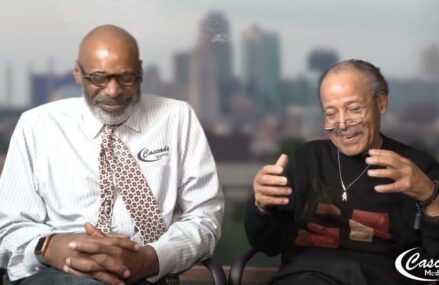By LYNN BERRY
From left, former U.S. Ambassadors to Russia Alexander Vershbow, Thomas Pickering, Jack Matlock, James Collins, John Beyrle and, right side of the table, Vladimir Lukin, former Russian ambassador to U.S., Yuri Dubinin, former Soviet ambassador to U.S., former Ambassador to Poland Leonid Drachevsky; director of Institute of USA and Canada Sergei Rogov and Alexander Bessmertnykh, Soviet ambassador to U.S are seen during their meeting in Moscow, Russia, on Sunday, March 31, 2013. More than two decades after the end of the Cold War, the way the United States and Russia view each other has changed fundamentally, as reflected in the words of former ambassadors from both countries gathered in Moscow to discuss relations between the former superpowers. While the Russians continued to speak of the two countries as superpowers, the former U.S. ambassadors referred to a changing world in which Russia is no longer that important for Americans and both countries are struggling to adapt to shifts in global economic and political power. (AP Photo/Lynn Berry)
MOSCOW (AP) — The way the United States and Russia view each other has changed fundamentally in recent years, a difference reflected in the words of several former ambassadors who gathered Sunday to discuss how the two countries can address the diplomatic challenges of today.
While the Russians continued to speak of the two countries as superpowers, the former U.S. ambassadors referred to a changing world in which Russia is no longer that important for Americans and in which both countries are struggling to adapt to shifts in global economic and political power.
The global shifts are “challenging Moscow and Washington in very profound ways, but, most significant, challenging them to think about how they work in a world in which they are no longer the only leaders that matter,” said James Collins, the U.S. envoy to Moscow from 1997 to 2001, who heads the Russia program at the Carnegie Endowment for International Peace, in Washington.
He was addressing eight other former ambassadors meeting in Moscow to commemorate 80 years since the United States recognized the Soviet Union in 1933, restoring relations that were broken off after the 1917 Bolshevik Revolution.
The U.S. and the Soviet Union emerged from World War II as rival superpowers and strove to expand their influence around the world while building up vast arsenals of nuclear weapons. The Cold War ended with the 1991 collapse of the Soviet Union. Since then, U.S.-Russian relations have had ups and downs, but the return of Vladimir Putin for a third term as Russia’s president last year ushered in an atmosphere of anti-Americanism not seen since Soviet times.
Putin has accused Washington of seeking to undermine his rule through its support of Russian nongovernmental organizations, particularly those that monitor elections, study corruption and promote civil rights. Hundreds of NGOs have been raided in recent weeks in what Putin said was a campaign to check compliance with a new law banning foreign funding of political activities.
Relations also were strained by a new U.S. law imposing sanctions on Russians accused of involvement in the death of whistleblowing lawyer Sergei Magnitsky and other human rights violations. Russia responded by banning adoptions by U.S. citizens.
The U.S. and Russia also differ on major international issues, including efforts to promote peace in Syria and prevent Iran from developing nuclear weapons.
Jack Matlock — who spent many years in Moscow during a long diplomatic career, including as ambassador from 1987 to 1991 — said that while Russians have strong emotional reactions to steps taken by the U.S. government, most Americans are no longer much interested in Russia. What little interest they have in foreign affairs is focused mainly on the Middle East and China, he said.
“But you know in these areas, I think as an American, either Russia is going to be part of the solution or part of the problem,” Matlock, 83, said in an interview before the meeting, which beyond introductory remarks was held behind closed doors. “And it should be our diplomacy to help them be part of the solution.”
Matlock chided Congress for passing the Magnitsky Act. “I do object when our Congress that can’t pass a budget, that has put our national credibility as a borrower under question, is passing laws that have to do with other countries. I think they should be concentrating more on taking care of our business. But I do think the reactions have been often emotional and not in the interest of either country.”
Yuri Dubinin, the Soviet ambassador to Washington from 1986 to 1990, said the former ambassadors would discuss how Russia and the United States could work together to have a positive influence on global affairs.
“Despite all the twists and turns of the past decades, Russia and the U.S. were and remain great diplomatic powers,” Dubinin said in an interview. “That’s how they were regarded and how they are regarded now in the world.”
His successor as Soviet ambassador, Alexander Bessmertnykh, also was optimistic that the two countries could overcome their differences.
“The situation is not hopeless,” Bessmertnykh said. He proposed a doubling of diplomatic efforts by those “who know how to manage relations between the two big powers.”



